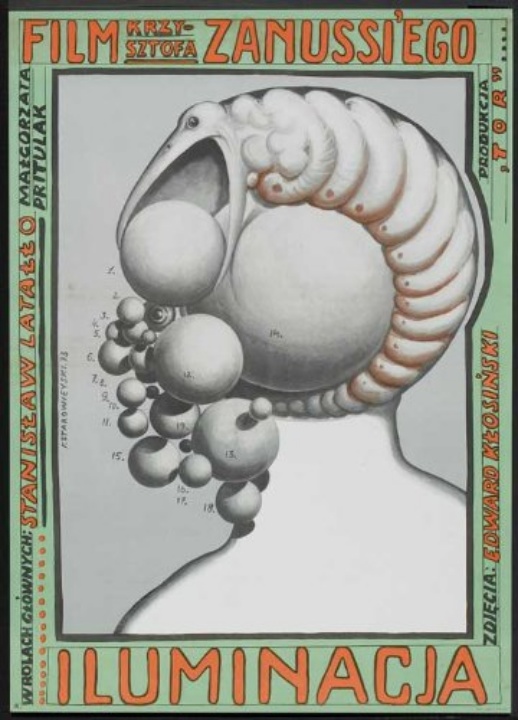One of Zanussi’s most radical and playful offerings as his protagonist, a physicist, attempts to put faith in science to explain human existence and matters of life and death.

Review #2,751
Dir. Krzysztof Zanussi
1973 | Poland | Drama | 89 min | 1.66:1 | Polish
Not rated – likely to be NC16 for some disturbing scenes
Cast: Stanislaw Latallo, Malgorzata Pritulak, Monika Dzienisiewicz-Olbrychska
Plot: A young provincial man comes to the capital to study physics and must tackle life’s universal questions. The film chronicles a decade in his life, during which his absolute faith in the primacy of rationality and science is shaken by tragedy and affairs of the heart.
Awards: Won Golden Leopard, Prize of the Ecumenical Jury & FIPRESCI Prize (Locarno)
Distributor: TVCO
Accessibility Index
Subject Matter: Moderate – Science vs. Faith; Human Existence; Physics
Narrative Style: Slightly Complex/Experimental
Pace: Slightly Slow
Audience Type: General Arthouse
Viewed: MUBI
Spoilers: No
I’m still rather early in my exploration of the work of Krzysztof Zanussi, but so far Illumination has caught my imagination, particularly how the director employed both scientific (e.g. diagrams, data, etc.) and administrative (e.g. letters, certificates, etc.) inserts as jump cuts that propel the film forward in time.
It shares some affinity with Godard in the film’s more radical approach to storytelling. With this approach’s incredible dexterity, Illumination takes us through in just 90 minutes, almost a decade in the life of a young physics student who has to deal with life’s challenges, including marrying early and raising a child.
His curiosity towards human existence and matters of life and death drives him to put immense faith in science to explain everything, an endeavour that would eventually disappoint him.
His attempt to try spiritual faith instead doesn’t quite give him any answers too, so he must will himself to reconcile with his inner existential turmoil.
His compatriot Krzysztof Kieslowski similarly explored the tension between science and religion in the first episode of his masterful Dekalog (1988).
“I don’t think we really are as important as it seems to us.”
Zanussi, however, is more playful and less fatefully vindictive a filmmaker than Kieslowski, offering a fascinating, albeit arthouse, way forward for films that try to combine hard science and human existence without being overtly ‘dry’ or melodramatic.
Big-budgeted movies today that similarly deal with these themes, for instance, Christopher Nolan’s mega-successful biopic, Oppenheimer (2023), owe some kind of spiritual debt to Zanussi’s work.
Parts of Illumination explore Polish life under Soviet communist rule—folks had jobs but weren’t necessarily well-to-do. Scientific research could be a ticket to prosperity and world domination in the Eastern Bloc.
As we see scientists perform neurological experiments on humans and animals (Zanussi inserts documentary footage which may be triggering to some), the film adds another layer of ‘harder’ science, but the filmmaker never loses sight of his protagonist’s search for mental clarity (how poetically convenient…).
Grade: A-
Trailer:
Music:











